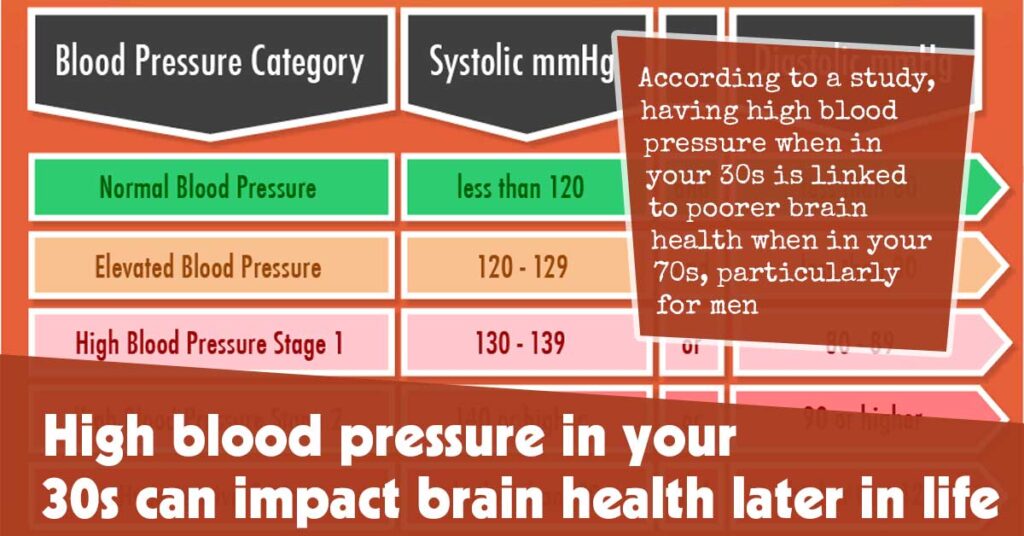According to a new study, having high blood pressure during your 30s has been linked with poorer brain health in your 70s – particularly for men.
Brain scans of older individuals aged 30-40 years with hypertension were compared with those from individuals with normal blood pressure.
Studies of hypertension participants revealed poorer integrity of white matter and reduced regional brain volumes – factors associated with dementia.
Studies also indicated that men exhibited more marked negative changes in some areas of the brain such as frontal cortex volume and reduced grey matter volume than women, likely attributable to estrogen’s protective benefits before menopause.
Dementia treatments are extremely limited; therefore, identifying protective and modifiable risk factors is key to decreasing disease burden.
Hypertension is an established risk factor associated with dementia that is also very treatable. According to this research study, early adulthood hypertension could have significant ramifications on brain health many years later.
Hypertension occurs when blood pressure exceeds normal. Normal levels should fall under 130/80 mmHg; according to estimates by the Centers for Disease Control (CDC), 47% of individuals in the US suffer from hypertension.
Hypertension rates vary greatly by race and sex. Roughly half of men suffer from it while 44% of women do; 39% of Hispanic individuals, 46% of Asian individuals, 48% of white individuals and 56% of Black individuals have hypertension while African American adults aged 35-64 years have it 50% more often than white people.
Data was reviewed from 427 participants who had taken part in both KHANDLE and STAR studies from 1964-1985, providing health information about Black, Asian, White, and Latino people of varying ages and origins.
Individuals aged 30-40 were given two blood pressure readings to establish whether or not their blood pressure was normal, transitioning towards hypertensive levels or had always been hypertensive during young adulthood.
Between 2017 and 2022, individuals who underwent MRI scans between 2017-2022 were examined for late-life neurodegeneration biomarkers and integrity of white matter integrity.
Studies involving hypertensive women and men found a notable reduction in cerebral gray matter volume; men experienced the largest decline.
Comparative brain scans between individuals with hypertension or those transitioning towards it and those having normal blood pressure revealed reduced frontal cortex volume, reduced cerebral gray matter volume and fractional anisotropy (a measure of brain connectivity). Men were found to score lower on these measures than their female counterparts.




